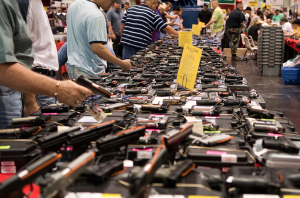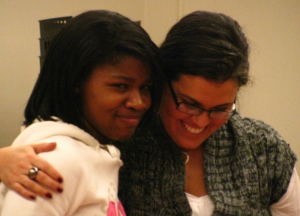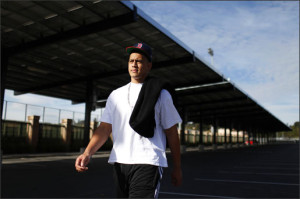News & Announcements
In this piece, a mother discusses how she talked to her kids about Lance Armstrong and his admission that he used drugs to enhance his cycling performance to repeatedly win the Tour de France. Knowing that restorative practices are used in her children's schools in San Francisco, Amy Graff floated the idea of using restorative practices with Lance and her kids took the bait. She writes:
At the dinner table the other night, I posed this question to my family.
My husband, a cycling enthusiast who’s passionate about the sport, shared, “I’m never forgiving him. The guy ruined the sport.”
“I forgive him, Mommy,” my son said with a smile.
“No way!” was my daughter’s gut reaction.
“But at school you’re taught to forgive your schoolmates,” I pointed out to my daughter. “How would you be asked to approach this situation at school? Would you forgive him on the school playground?”
 In anticipation of the February 2013 issue of The Prevention Researcher on restorative justice, which is sponsored by the International Institute for Restorative Practices, the magazine has just released an audio podcast interview about school implementation of restorative practices. Dr. Christopher Plum is Interim Superintendent at the Plymouth Educational Center, a K-12 charter District in the heart of Detroit, Michigan.
In anticipation of the February 2013 issue of The Prevention Researcher on restorative justice, which is sponsored by the International Institute for Restorative Practices, the magazine has just released an audio podcast interview about school implementation of restorative practices. Dr. Christopher Plum is Interim Superintendent at the Plymouth Educational Center, a K-12 charter District in the heart of Detroit, Michigan.
A few years ago, the Plymouth Educational Center began using mandatory, district-wide, restorative practices. Since then, district administrators and faculty have witnessed a "magical" transformation of their school culture. Dr. Plum talks about the restorative practices which have been implemented, the challenges in doing so, and what changes he has noticed in the schools.
Along the lines of the previous post, I would also add this statement from the Dignity in Schools Campaign:
In the weeks following the tragic events in Newtown, Connecticut, a number of advocates, including members of Congress and the National Rifle Association, have called for armed guards and/or police officers in public schools. As Vice President Joe Biden’s task force on gun violence develops policy recommendations in response to the attack and gun violence more generally, a coalition of youth, parents, education advocates, civil rights organizations, and law enforcement are cautioning the White House against embracing proposals to put armed guards and police in schools.
“A police presence makes us feel unsafe and unwelcome in our own schools,” said Tanisha Denard, a youth organizer with the Youth Justice Coalition, a member of the Dignity in Schools Campaign. “Police are trained to stop and prevent crime on the streets, not to mediate problems that may come up between young people in a school. When we go to school, we go there to learn, to be students, not to be treated like criminals.”
The rest of the statement can be found here.
 Photo by Michael Glasgow at Flickr Creative Commons
Photo by Michael Glasgow at Flickr Creative Commons
Mikhail Lyubansky at Psychology Today posted this letter submitted by Psychologists for Social Responsibility (PsySR) to Vice-President Joe Biden's office in reference to his Task Force on Gun Violence. In addition to recommending a ban on assault weapons, the group makes two recommendations relating to restorative justice.
They first outline their position as follows:
"We see school attacks such as Newtown in the context of a broader culture that endorses force and violence as the way of resolving disputes, including war, urban violence and a harsh, punitive criminal justice system. As mental health professionals, we know that effective psychological treatment can help troubled individuals find safer ways to express themselves, and we unequivocally support early identification of mental health concerns and improved access to services for those who need them. However, the data show that there is no single cause of violence and, as a group, those with mental illness are no more prone to violence than those without such a diagnosis. Similarly, the empirical data have so far failed to establish a clear and consistent link between media consumption and violence. It is our position that violence is a societal problem, not a mental health or media problem, and we urge the Task Force to respond accordingly and not focus exclusively on a particular subgroup of Americans. We also believe that easy access to guns, especially assault weapons, are part of the culture of violence and believe that any national effort to reduce violence must somehow address the easy access to such weapons."
 Photo by Pat Schneider for The Capital Times
Photo by Pat Schneider for The Capital Times
Pat Schneider in The Capital Times reports on a project to implement restorative practices in a number of Madison, Wisconsin schools, with training provided by the YWCA.
Here are two excerpts from the article:
To hear the students at Sennett Middle School tell it, restorative practices hold a lot of potential for helping students do better in school and for building more positive relationships.
The Sennett students spoke of skills they developed while training as the “circle keepers” who run restorative circles at a brief ceremony on Dec. 18 marking their accomplishment. Training in the circle has helped them learn to work with each other, help others and take others’ opinions into account, students said. “It really got me thinking,” said one boy. “It makes me see who I want to be in life,” said eighth-grader Pierre Ruffin.
Nirvi Shah reports in Education Week that researchers at Johns Hopkins University have found a relationship between suspensions and failure to graduate from high school. But they also say that other factors might be at work in reducing graduation rates.
About three-fourths of Florida 9th graders who were never suspended out of school as freshmen graduated from high school, compared with a 52 percent graduation rate for those suspended once and a 38 percent rate for those suspended twice in their first high school year, an analysis has found.
 On February 14 and 15, 2013, coinciding with Black History Month activities, Medgar Evers College of the City University of New York and the Kings County District Attorney's Office have partnered to create their first Symposium on Race, Law and Justice. The theme of the Symposium is "Closing the School-to-Prison Pipeline." IIRP Director of Continuing Education John Bailie will be part of a national panel to come together and "address the rapidity with which young students are being driven away from a learning environment toward a life involving the criminal justice system."
On February 14 and 15, 2013, coinciding with Black History Month activities, Medgar Evers College of the City University of New York and the Kings County District Attorney's Office have partnered to create their first Symposium on Race, Law and Justice. The theme of the Symposium is "Closing the School-to-Prison Pipeline." IIRP Director of Continuing Education John Bailie will be part of a national panel to come together and "address the rapidity with which young students are being driven away from a learning environment toward a life involving the criminal justice system."
Details: Thursday, February 14, 2013, 8:30 AM - 5:00 PM and Friday, February 15, 2013, 8:30 AM - 1:00 PM at 1150 Carroll Street, Brooklyn, NY 11225 (between Nostrand Avenue & Rogers Avenue). RSVP to:
Information and registration details can also be found here.
Last week I posted links to a story about restorative justice used in a murder case. Subsequently on the Restorative Justice International LinkedIn group Lisa Rea, president of the Justice and Reconciliation Project, posted a link to a piece from five years about another such instance. Rea and Cheryl Ward-Kaiser, a woman whose daughter was raped and husband murdered in front of her eyes, discuss Ward-Kaiser's quest to meet the perpetrators of the crime and restorative justice in general during this half-hour segment from National Public Radio. Listen here.
 Timote Vaka, 18, a senior at Ralph J. Bunche High School in Oakland by Ramin Rahimian for Education Week
Timote Vaka, 18, a senior at Ralph J. Bunche High School in Oakland by Ramin Rahimian for Education Week
Nirvi Shah at EdWeek has reported many times on restorative justice, restorative practices and other alternatives to zero tolerance policies in schools. This week the magazine published a lengthy piece, "Discipline policies shift with views on what works," as well as a shorter piece about a young man, Timote Vaka, who undergoes restorative justice at his alternative high school in Oakland.
Vaka had already been expelled from his public school, but at his new school which utilizes restorative justice, he had dramatically improved his grades and behavior. However, he lost his temper on the basketball court and assaulted a player on the opposing team. A "restorative justice" teacher, Eric Butler, who had a good relationship with Vaka, advocated that Vaka get another chance rather than be expelled from this "last chance" school.
 Andrew Shaw, writing in the York Dispatch, reports that "Four York County [Pennsylvania] schools received state grant funding to prevent and reduce incidents of violence."
Andrew Shaw, writing in the York Dispatch, reports that "Four York County [Pennsylvania] schools received state grant funding to prevent and reduce incidents of violence."
One of the four schools, Crispus Attucks YouthBuild charter school, "is working with Bethlehem's International Institute for Restorative Practices. The institute will train YouthBuild teachers with its 'Safer, Saner Schools' [sic] program to reduce 'incidents of misbehaviors, expulsions, bullying and student absenteeism,' according to principal Melissa Bupp.
